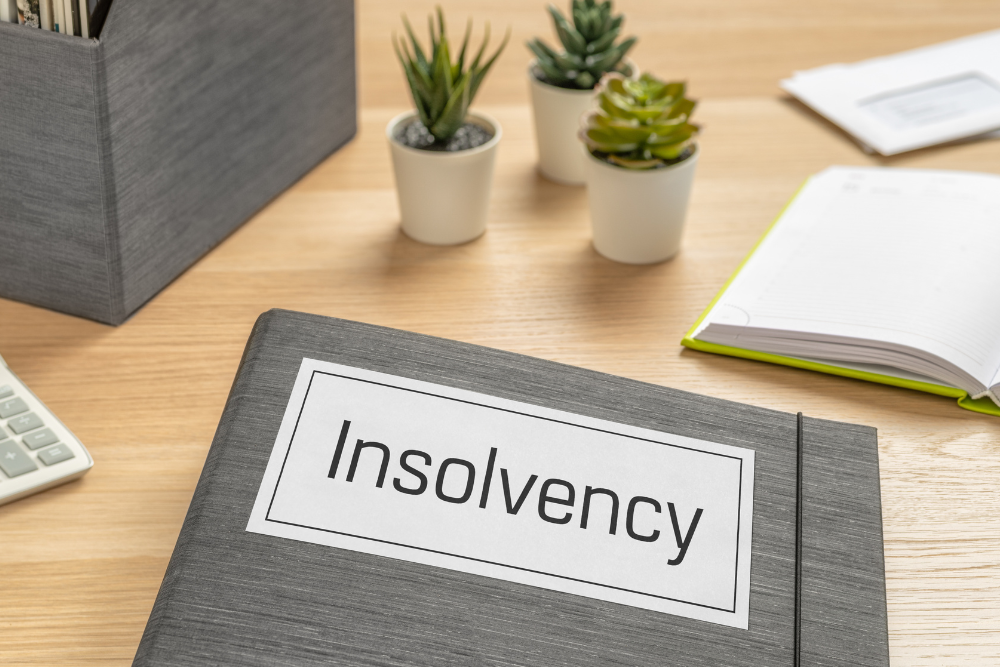Things about Insolvency Practitioner
Insolvency Practitioner Things To Know Before You Buy
Table of ContentsThe 3-Minute Rule for Insolvency PractitionerThe Insolvency Practitioner DiariesThe Main Principles Of Insolvency Practitioner The Best Strategy To Use For Insolvency PractitionerInsolvency Practitioner Fundamentals Explained
Whether you need to make use of an insolvency specialist (IP) to liquidate your company depends upon various variables. While engaging a bankruptcy expert for all kinds of liquidation is not a lawful demand, doing so can often streamline the process and make sure conformity with lawful demands. Liquidating a company is an important choice that includes substantial repercussions.
It is a procedure used when a business does not have any creditors, or all of their creditors can be paid off completely with statutory interest. Recognizing the different types of insolvency procedures can assist you identify the finest strategy for your company's liquidation or various other official insolvency procedures itself.
This is compulsory in order to comply with legal needs - Insolvency Practitioner. This is since IPs have the necessary credentials and experience to make certain that the liquidation process is conducted based on all appropriate regulations and policies. By engaging an accredited insolvency specialist, you can have assurance knowing that your business's liquidation process will be dealt with properly and in conformity with the appropriate lawful needs
Top Guidelines Of Insolvency Practitioner
The bankruptcy professional is assigned as a liquidator and is accountable for taking care of the business and liquidator's financial debts exceptional responsibilities and possessions. This process includes liquidating the company's possessions and distributing the earnings to lenders. Upon completion of the procedure, the company is eliminated from the register at Companies Residence.
Falling short to do so can cause individual obligation for the company or supervisor for the lender's financial debts. Voluntary liquidation, that includes Creditors' Volunteer Liquidation (CVL) and Participants' Volunteer Liquidation (MVL), is started by the business's directors and investors when they can no more pay their debts. In a CVL, the insolvency professional is designated as the liquidator, liable for handling business financial obligations and all business assets.

An Unbiased View of Insolvency Practitioner
By analyzing the proficiency and experience of potential bankruptcy specialists, you can make sure that you select an expert who has the necessary qualifications to manage your business's liquidation procedure effectively. While bankruptcy practitioner-led liquidation is often the most suitable program of action for business encountering bankruptcy, there are alternative strategies to think about, such as striking off and partial liquidation.
It's necessary to review all available alternatives prior to picking the next ideal service or program of action for your business. Striking off business' registers is a much more straightforward and economical way to shut dormant or tiny firms with no financial debts or assets. To strike off a company, its name is eliminated from the Business House register by submitting type DS01.
Before deciding for striking off, it's essential to weigh the benefits and drawbacks of this approach Find Out More and think about whether it's the best choice for your company. Partial liquidation is an additional alternative to bankruptcy practitioner-led liquidation, where a firm liquidates certain properties and responsibilities while continuing to run with the continuing to be assets and liabilities.
A Bankruptcy Expert will be able to advise you of the very best program of action to take and make certain that every little thing runs smoothly. However, it is not feasible to liquidate a company without a liquidator. Appointing an authorised bankruptcy specialist is required for the procedure of volunteer liquidation to start.
Indicators on Insolvency Practitioner You Should Know
It is feasible to shut and liquidate your firm without using a liquidator, given your firm is solvent and you meet the eligibility demands to dissolve or liquidate it. Nevertheless, if your firm is financially troubled, you may be called for to make use of a liquidator and begin official insolvency treatments. Right here are some her explanation other informative articles regarding business liquidation in the UK:.
Being in a placement where you're unable to pay your firm's financial institutions is very difficult. In an effort to stay clear of enhancing the degree of financial obligation, lots of firms attempt to work out directly with their lenders and consent to a casual arrangement. If the financial debt is fairly tiny and owed to one financial institution, and the lender is being participating, becoming part of an informal financial obligation setup is most likely the very best option, rather than looking the internet for 'a bankruptcy professional near me'.
On the various other hand, if there are multiple financial institutions and the level of financial obligation is big, lenders might not be so prepared or participating. To avoid liquidation or insolvency, it is far better to work with an insolvency professional to draw up formal propositions and discuss with creditors in your place.
Things about Insolvency Practitioner
Whilst it is a means to handle financial obligation, there are significant risks entailed with this sort of financial obligation setup - Insolvency Practitioner. If a lender is ready to become part of a casual arrangement (IA) where the borrower has consented to make regular, if lower, settlements to pay back the financial obligation, it is very important to stay with the arrangement

For that reason, the lender is within their rights to back out of the agreement and application the courts for your company to be sold off at any moment. A formal setup that has actually been recommended by a bankruptcy specialist on your part, and concurred by a creditor, provides a much more secure option.